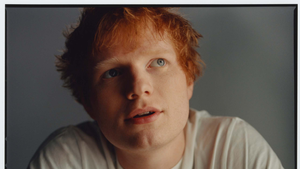Another court filing has been made in the long-running legal battle that accuses Ed Sheeran of ripping off Marvin Gaye’s ‘Let's Get It On’ when he wrote 2014 hit ‘Thinking Out Loud’.
Structured Asset Sales, which has an interest in the copyright in Gaye's song, wants the Second Circuit Appeals Court to reconsider a recent ruling, in which the appeals court concluded that Sheeran's song doesn’t infringe the copyright in the earlier work.
Specifically, SAS asks the Second Circuit to reconsider the answer it gave to a question relating to a copyright technicality: can the courts only compare the similarities between Sheeran’s song and the sheet music version of ‘Let's Get It On’, rather than Gaye’s song as it was recorded?
The answer to that question, SAS says, impacted on the recent ruling. Not only that, it’s also relevant to “thousands of legacy songwriters, artists and/or musicians, who created millions of musical compositions and songs”. Which means it’s really important to get the answer right.
In the song-theft litigation against Sheeran, the appeals court answered that question “yes”, only the sheet music version of ‘Let’s Get It On’ could be considered. But, says SAS, the judges should reconsider that answer in light of a recent ruling in the US Supreme Court in the Loper Bright Enterprises v Raimondo case, which involved the fishing industry
You might wonder how a fishing industry dispute could possibly impact on a song-theft dispute involving Ed Sheeran. But it all comes down to whether or not courts should give deference to relevant government agencies when dealing with ambiguous areas of the law.
And those government agencies might be the National Marine Fisheries Service - as in the Loper Bright case - or the US Copyright Office, as in this case.
Under US law, in song theft cases like this, courts are meant to assess the similarities between the two songs as they were filed with the US Copyright Office. Where the two songs in dispute were both published after 1978, chances are the original recording of both songs were filed. But prior to 1978, songs could only be filed as sheet music.
Where songs pre-date 1978, like ‘Let's Get It On’, courts have generally said that only the sheet music version of the song can be considered. Which is annoying if you are the owner of the copyright in the older work, and you feel that the similarities between that and the new song are stronger when you put the two recordings side by side.
Both the district court and the appeals court in SAS’s case against Sheeran ruled that only the sheet music version of ‘Let's Get It On’ could be considered.
However, in a new filing, SAS says that the judges reached that conclusion partly because of guidance from the US Copyright Office in its ‘Compendium Of US Copyright Office Practices’. And partly because of the ruling in the relatively recent Led Zeppelin song-theft case, which in turn relied on the ‘Compendium Of US Copyright Office Practices’.
While the US Copyright Office presumably knows a thing or two about copyright law, SAS argues that - following the Loper Bright ruling in the Supreme Court - the Second Circuit doesn’t need to show the US government’s copyright agency the same kind of deference as it may have done in the past.
To that end, SAS wants the Second Circuit to reconsider this specific copyright question en banc, so that more judges will be involved.
Not only is the answer to that question important for SAS, but - it insists - it’s also crucial for “thousands of legacy songwriters, artists and/or musicians, who created millions of musical compositions and songs, including some of the greatest songs and musical compositions ever written, who had no choice - by virtue of the Copyright Office’s policies - but to submit sheet music (rather than sound recordings) as deposits in connection with their copyright applications”.
That makes this “an issue of exceptional importance that should be considered en banc”.

